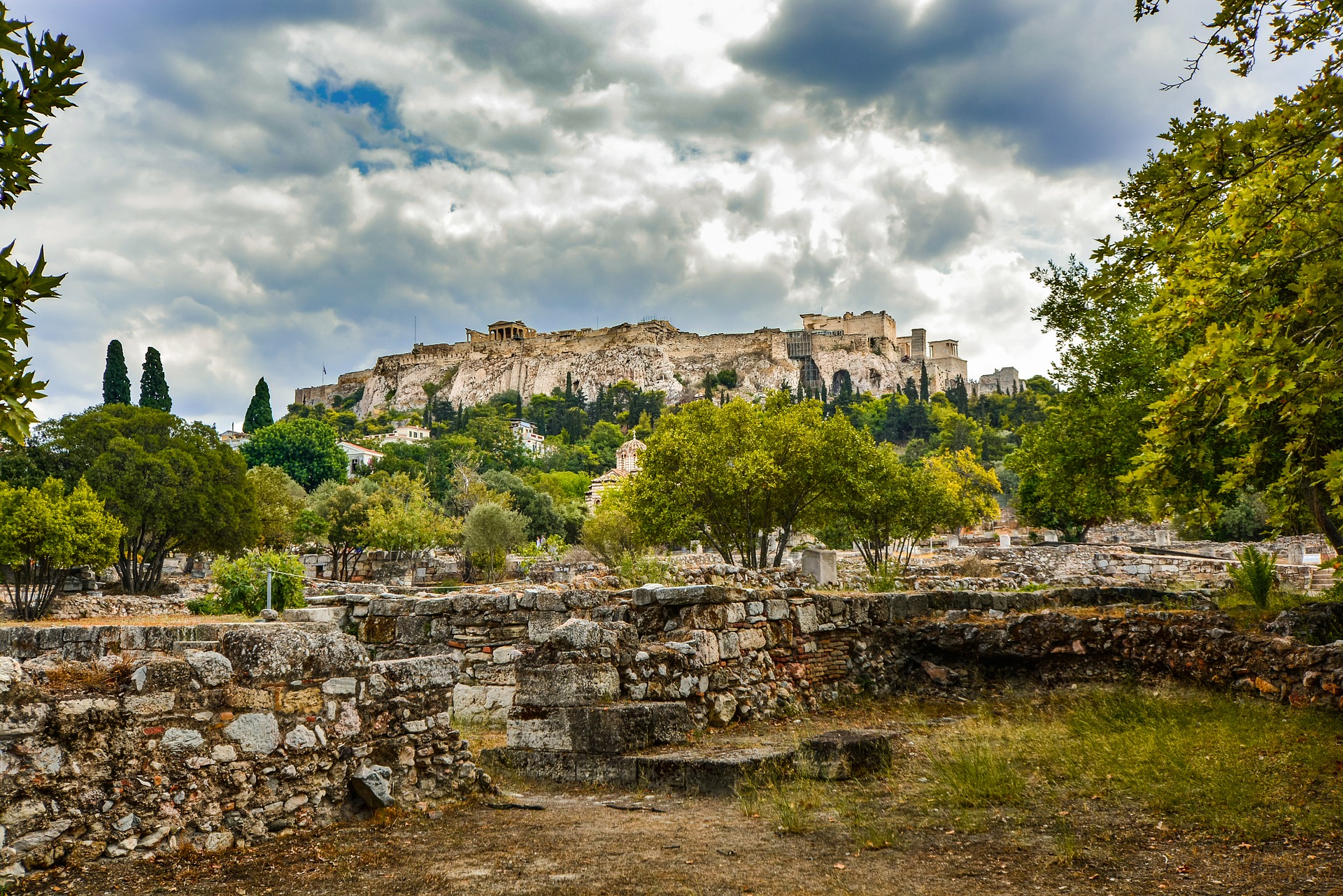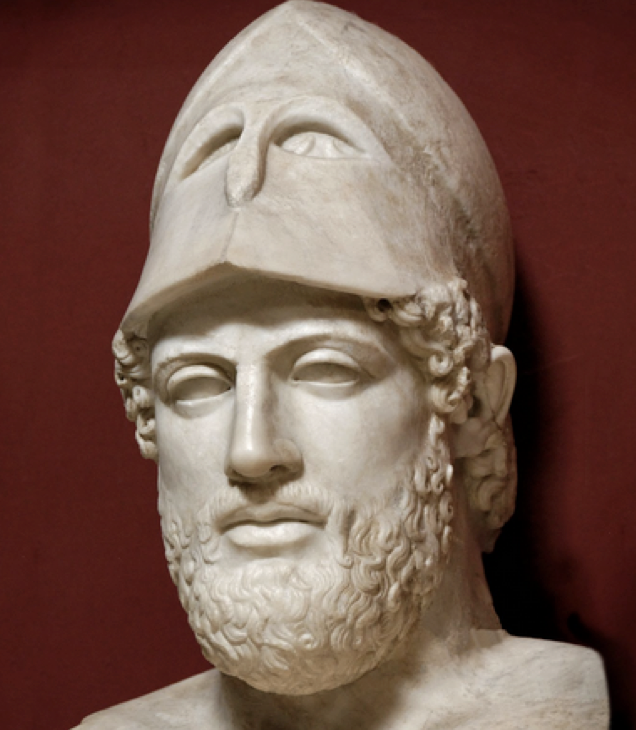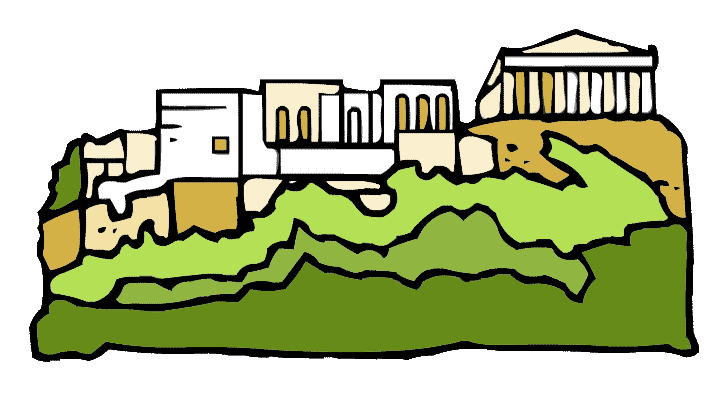Summary of the Long Now Boston Community Conversation April 5, 02018
By George Gantz
According to Professor Jay Samons, we have been fooling ourselves for a very long time. The idea that democracy was the beacon for enlightened governance only appeared in the 19thcentury, and the mythology on which it is based is a fraud. Athens was great, and its reputation has persisted for 2500 years, because of its culture, not its governance. “Athens itself actually had a good Long Now”, according to Jay. “They produced a wealth of masterpieces in art, architecture, literature and philosophy. That’s why we remember them today.”

Athenian democracy, over time, actually undermined the virtues by which Athens flourished. Citizenship began as a virtuous commitment and obligation to serving the interests of the city-state. Under democratic rule, however self-interest slowly trumped the public interest. Eventually, with the help of populist leaders like Pericles, citizenship evolved almost into a sinecure based on payments from the general treasury. Prior to Pericles, Athenians were expected, not only to serve in the military and pay their taxes, but also to serve on juries as part of their public service. In his appeal for votes, Pericles proposed that Athenians be paid for jury service. This measure was widely popular and boosted Pericles’ political career; it also solved the problem of recruiting jurors. But the trend of paying citizens from public funds was never rescinded (without a revolution) and marked a major shift in the political culture of Athens.
Similar actions were to follow – including a law to pay Athenians for voting. One response to Athens’ budgetary challenges these payments created was to stipulate, by majority vote on a proposal of Pericles, that only “real” Athenians could receive these benefits, and the definition of “real” was tightened to include only those whose parents were BOTH Athenians. Democracy protects the in-group, sometimes quite viciously.
Athens also demanded tribute in gold and silver from the states in its empire. While these payments were originally justified by Athens’ defeat of Persia, and their commitment to defend against Persian attack, they were later enforced by Athenian threats backed up by naval supremacy. This accumulated wealth was ultimately moved to Athens (by popular vote of Athenian citizens) and used to fund increasingly expensive Athenian monuments.

Athens’ budgetary woes became more acute as the Peloponnesian Wars with Sparta escalated under Pericles’ rule. Without adequate sources of income for the massively expensive war, Athens developed a unique funding source – they “borrowed” the funds from the Goddess Athena, including commandeering the gold from her statues, and promising to pay it back with interest at 7% after the war. The citizens of Athens later reduced the interest rate to 1.5% — but the debt was never repaid.
The true story of Athenian democracy is that it led inevitably to profligate spending, unsustainable debts, best-case-scenario thinking, and debilitating foreign entanglements. The Athenian empire collapsed, defeated by Sparta. Curiously, Sparta, an oligarchy, outlasted Athens; but with fewer monuments, Sparta did not fare as well in the historical record. However, a term applied to Sparta survives today in our national anthem: “Land of the free, home of the brave.”
It is easy to see many trends that led to the demise of Athens at work in our modern democracies. Many teeter between polarizing demands from citizens for the government to do more and spend more, and simultaneously to cut taxes. As Professor Samons put it, “People will vote themselves into debt.” The Athenians demonstrated that if people are given a choice to vote for a politician who says something will be costly and difficult, or a politician who says, “Trust me this is the path to wealth and greatness,” they will go for the promise of greatness, and not prudence.
Can this process by reversed? Perhaps, but not, according to Jay Samons, by appealing for government solutions. The problem is fundamentally a cultural one, and can only be cured by changing culture. Originally in Athens, a common citizen who wished to hold office was required to answer publicly and in the affirmative three questions: Do you honor the Gods? Do you take care of your parents? Do you pay taxes and serve in the military?
One might ask, in our modern era, if there is space in our cultural dialogue, to consider the words spoken by John F. Kennedy in his first inaugural address: “My fellow Americans, ask not what your country can do for you, ask what you can do for your country.”
If we can begin to answer this question, not only for Americans but for all of Earth’s inhabitants, perhaps we will get closer to Long Now goal of becoming a good ancestor.
____________________________
Athenian Perspectives of the Long Now:
Pericles died of the plague, but in his final speech he claimed that Athens would be remembered forever for its military strength and power. The city’s subsequent defeat at the hands of Sparta and over two thousand years of praise for Athens’ cultural (but not political) legacy ultimately proved him wrong. Socrates, who was executed by majority vote for (essentially) asking too many questions, believed Athens would be remembered in infamy for killing a wise man. He too was wrong. Thucydides believed that the past and the future reflect the unfolding patterns of our innate human nature. The greatness of Athens in the expression of their culture, through art, architecture, literature, history and philosophy, has proven him right.
____________________________
Long Now Boston
LONG NOW BOSTON is in the process of forming as a 501(c)(3) that will be organizationally independent from but philosophically aligned with the Long Now Foundation. Long Now Boston is intended to provide a forum for discussing, investigating and engaging in issues that have long term implications for our global cultures. Long Now Boston hosts a monthly Community Conversation series at the Café ArtScience in Cambridge, MA.
The next Community Conversation will be held on Monday May 7th and will feature a participatory discussion with Juan Enriquez, renowned futurist, best-selling author and venture investor. This conversation will focus on the structure and formation of moral norms, and on the profound influence technology exerts on those norms. Doors open at 6PM and the presentation begins at 7PM. Tickets are available at Eventbrite.
____________________________
Biography –
Professor Loren J. Samons II, a Professor of Classical Studies at Boston University since 01993, earned his doctorate at Brown University. Professor Samons specializes in the history of Greece in the fifth and sixth centuries B.C., with particular interests in Athenian politics and imperialism. He is he author, co-author, or editor of six books and numerous articles on ancient Athens.
His current research focuses on the figures of Pericles and Kimon, Athenian foreign policy, the Modern Greek poet Cavafy, and the composition of Herodotus’ and Thucydides’ histories. His work has often focused on potential lessons about current (and future) government and society derived from the study of ancient Greece and Rome.

















